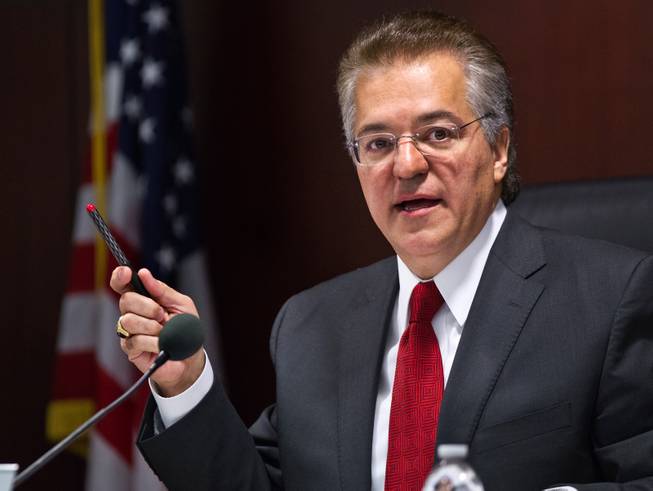Wednesday, Dec. 21, 2016 | 2 a.m.
Related Coverage
Anyone who is defined as a gaming employee, according to Nevada Revised Statute 463.0157, must be registered before they can work in the gaming industry.
Becoming a registered employee is different than getting a gaming license. But it still involves a background investigation, and registered employees must not break the law.
The casino jobs that require registration include dealers, change personnel, counting-room personnel, keno runners, keno writers, machine mechanics, oddsmakers and line setters, security personnel, shift or pit bosses and a host of other gambling-related jobs.
According to James Taylor, deputy chief of special investigations for the Nevada Gaming Control Board, 94,000 people in Nevada are registered gaming employees. When one of those employees does something they shouldn’t and the board hears about it, they can be denied registration.
The list of things they shouldn’t do includes:
• Lying on their application.
• Breaking gaming laws and regulations in a previous job.
• Committing or planning to commit “any crime of moral turpitude, embezzlement or larceny or any violation of any law pertaining to gaming, or any crime which is inimical to the declared policy of this State concerning gaming.”
• Committing a felony or gross misdemeanor that would make them not suitable to work in gaming.
• Being publicly identified as a member of organized crime.
• Being in jail.
After being denied registration, they also can appear before the Nevada Gaming Commission to appeal the decision. And those hearings are sometimes just as gut-wrenching as the ones for gaming licenses.
That was the case for one woman who was trying to get re-registered for a job she had waiting for her at Poker Palace in North Las Vegas. She was charged with assault after getting into a fight with her sister, and with possession after she was pulled over by police who found drugs under her car seat.
Both charges were thrown out, but she still was denied registration and had to appeal, the same day as Owl’s Stephan Michael Galdau, to work again. The commission gave her another chance.
A former blackjack dealer, who spoke to the commission through a Chinese/English translator, was arrested for solicitation in a massage parlor. Her charges were also thrown out. But she was recommended for denial, appeared before the commission to appeal, and won her case.
And then, also on Nov. 17, the commission heard from Wendora Bell, who wanted to work again after fighting and apparently winning her war against drug abuse.
“I have not been in any trouble going on seven years now,” Bell told the commission. “I do … I’m so nervous, so excuse me. I go to meetings, and I would just like to become more of a productive member of society today. (Blackjack dealing) is something that I enjoy doing, and I have done it for over 25 years now. I have been turned down for my card a couple of times now, and I didn’t know what I could do, that I could actually be here. And I have been here now five hours just to say that I just would like to be given one more chance.”
During testimony, Commission Chairman Dr. Tony Alamo reviewed Bell’s record, detailing her criminal acts and drug use before asking how she was doing right now.
“If I did a drug test today, what would it show?” he asked.
“Absolutely nothing,” Bell answered. “I am more than willing to do a drug test right now.”
“That goes a long way,” Alamo said. The discussion went on for a few more minutes before Bell, relieved that her time before the commission was over, won back the right to work in casinos.


Join the Discussion:
Check this out for a full explanation of our conversion to the LiveFyre commenting system and instructions on how to sign up for an account.
Full comments policy